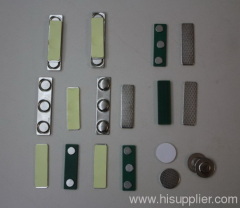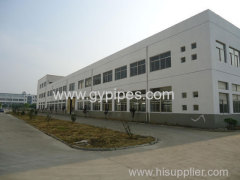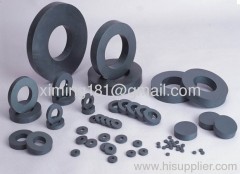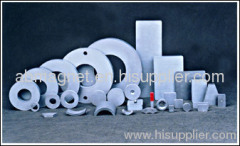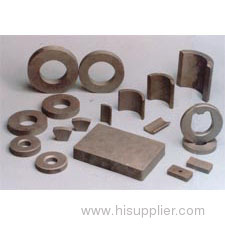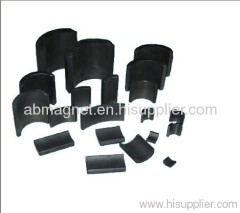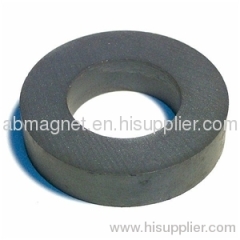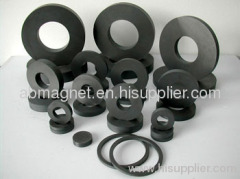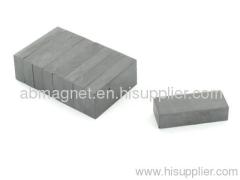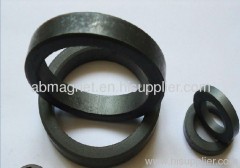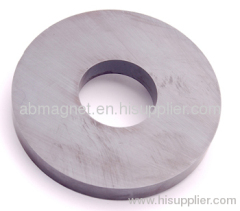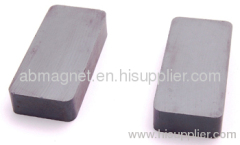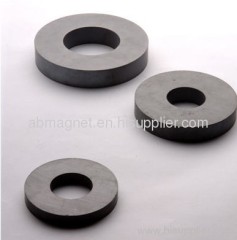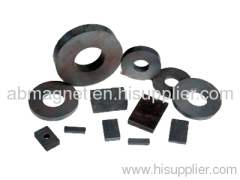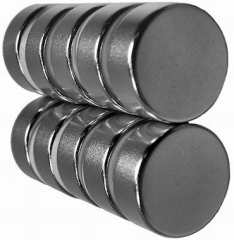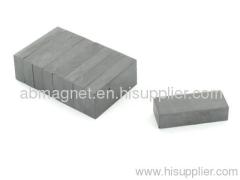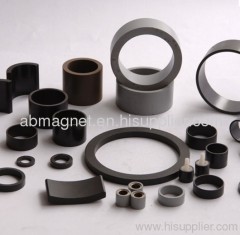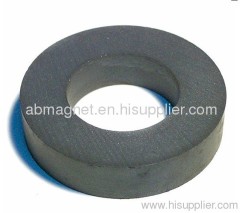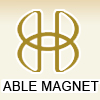
|
Ningbo Able Magnetic Co., Ltd.
|
ceramic magnet
| Price: | 10.0 USD |
| Payment Terms: | T/T,L/C,WU |
| Place of Origin: | Zhejiang, China (Mainland) |
|
|
|
| Add to My Favorites | |
| HiSupplier Escrow |
Product Detail
Product name:Ceramic magnet
Type:permanent
Composite:ferrite magnet
Shape:disc
Grade:Y10T,Y20,Y25,Y30,Y30BH,Y35
Product name:Ceramic magnet
Type:permanent
Composite:ferrite magnet
Shape:disc
Grade:Y10T,Y20,Y25,Y30,Y30BH,Y35
Ceramic Magnets offer the best value when comparing cost with other type of magnets. Ceramic (Ferrite) magnets are inexpensive, moderate in magnetic strength, and they are easily magnetized in a variety of formats. Ceramic magnets offer good corrosion resistance and generally do not require a coating or plating. Consideration should be given to the grade of alloy when exposing Ceramic magnets to temperature extremes. Ceramic (Ferrite) magnets have good resistance to external demagnetization fields because of its high Intrinsic Coercive Force (Hci) . This resistance and low cost makes Ceramic magnets a popular choice for electromechanical
Ceramic (Ferrite) magnets are very hard and brittle. Like all magnetic materials, ceramic should not be used as a structural element in a design. Ceramic (Ferrite) magnets are particularly prone to cracking when the application involves impacts or flexing. As with most ceramic, the ferrite magnets should not be exposed to heating or cooling rates greater than 200°F per hour
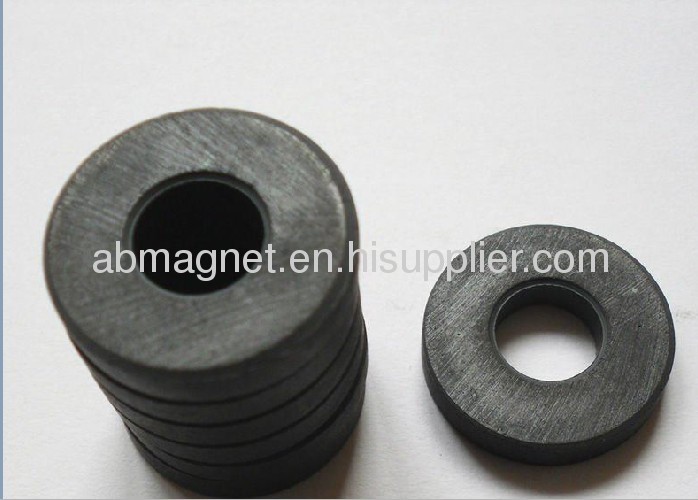
Type:permanent
Composite:ferrite magnet
Shape:disc
Grade:Y10T,Y20,Y25,Y30,Y30BH,Y35
Ceramic Magnets offer the best value when comparing cost with other type of magnets. Ceramic (Ferrite) magnets are inexpensive, moderate in magnetic strength, and they are easily magnetized in a variety of formats. Ceramic magnets offer good corrosion resistance and generally do not require a coating or plating. Consideration should be given to the grade of alloy when exposing Ceramic magnets to temperature extremes. Ceramic (Ferrite) magnets have good resistance to external demagnetization fields because of its high Intrinsic Coercive Force (Hci) . This resistance and low cost makes Ceramic magnets a popular choice for electromechanical
Ceramic (Ferrite) magnets are very hard and brittle. Like all magnetic materials, ceramic should not be used as a structural element in a design. Ceramic (Ferrite) magnets are particularly prone to cracking when the application involves impacts or flexing. As with most ceramic, the ferrite magnets should not be exposed to heating or cooling rates greater than 200°F per hour
Ceramic Magnets Manufacturing Process
Ceramic (Ferrite) Magnets are produced by calcining a mixture of iron oxide and strontium carbonate to form a metallic oxide. A multiple stage milling operation reduces the calcined material to a small particle size. The powder is then compacted in a die by one of two methods. In the first method, the powder is compacted dry which develops an isotropic magnet with weaker magnetic properties, but with better dimensional tolerances. Often times a dry pressed magnet does not require finish grinding. In the second method, the powder is mixed with water to form slurry. The slurry is compacted in a die in the presence of a magnetic field. The applied field creates an anisotropic magnet which exhibits superior magnetic properties, but usually requires finish grinding.
The compacted parts which approximate the finished geometry are then sintered at high temperatures to achieve the final fusion of the individual particles. Final shaping is achieved by diamond abrasives. Usually the pole faces of the ceramic (ferrite) magnets will be ground and the remaining surfaces will exhibit "as sintered" tolerances and physical characteristics
The compacted parts which approximate the finished geometry are then sintered at high temperatures to achieve the final fusion of the individual particles. Final shaping is achieved by diamond abrasives. Usually the pole faces of the ceramic (ferrite) magnets will be ground and the remaining surfaces will exhibit "as sintered" tolerances and physical characteristics
Ceramic Magnets Temperature Characteristics
Ceramic (Ferrite) magnets are susceptible to demagnetization when exposed to temperature extremes. There are grades which have better resistance to high and low temperatures, but several factors will dictate the performance of the Neodymium magnet. One of the most pertinent variables is the geometry of the magnet or magnetic circuit. Magnets which are thin relative to their pole cross-section (Magnetic Length / Pole Area) will demagnetize easier than magnets which are thick. Magnetic geometries utilizing backing plates, yokes, or return path structures will respond better to temperature changes. The maximum recommended operating temperatures listed on the Ceramic magnetic characteristics page does not take into account all geometry conditions. Please contact a Dura team member for design assistance when temperature extremes are involved in your application.
Ceramic Magnets Corrosion Characteristics (Surface Treatment)
Ceramic (Ferrite) magnets are very resistant to corrosion. Coatings can be applied for cosmetic reasons or to reduce the fine, ferrite powder which is associated with ceramic (ferrite) magnets.
A Dura team member will assist with the selection of best surface treatment option for your Ceramic (Ferrite) application.

Didn't find what you're looking for?
Post Buying Lead or contact
HiSupplier Customer Service Center
for help!



